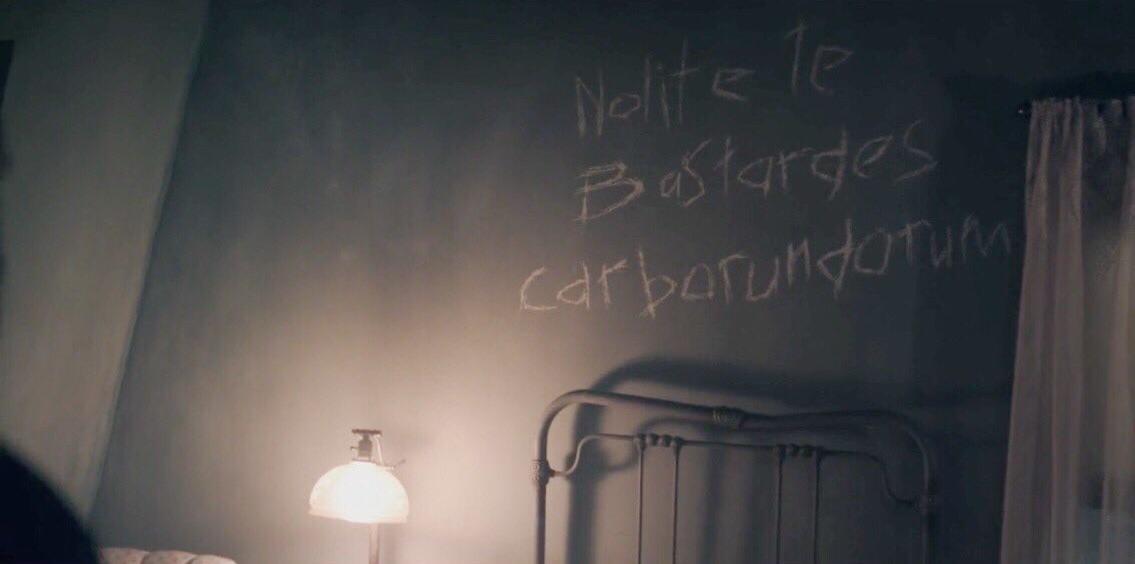"Nolite Te Bastardes Carborundorum" Is Still Important on 'The Handmaid's Tale'
Published June 17 2021, 1:49 p.m. ET

Warning: This article contains spoilers for Season 5 of The Handmaid's Tale.
The final moments of the Season 4 finale of The Handmaid's Tale show a headless body hanging on a wall with the words "nolite te bastardes carborundorum" written behind it. Most dedicated fans of the show (and the book, for that matter) know this is a callback to other seasons, and Season 1 in particular. However, there are some viewers who are still a little foggy on what the Latin phrase means and its significance in the series.
So, what does "nolite te bastardes carborundorum" mean on 'The Handmaid's Tale'?
In Season 1 of The Handmaid's Tale, while June is at the end of her rope and fearing for her safety and future in the Waterford home, she sees the words "nolite te bastardes carborundorum" carved into her closet wall. The words were put there by the handmaid who had been in the home before her. And, when June felt brave enough to ask Fred what the Latin words meant without telling him where she saw them, he translated for her.

In the show, "nolite te bastardes carborundorum" translates to "don't let the bastards grind you down," and it makes sense, given June's position as a handmaid and the life that she and other handmaids are forced to live in Gilead. But, as The Handmaid's Tale author Margaret Atwood explained to Time in 2017, the actual "Latin" words in the phrase are made up.
"I'll tell you the weird thing about it," Margaret told the outlet. "It was a joke in our Latin classes. So this thing from my childhood is permanently on people's bodies."
Some fans have the so-called Latin phrase have it inked on their bodies forever. Even if the translation is off, it still holds meaning and weight among fans.

Who wrote "nolite te bastardes carborundorum" on the wall in Season 1?
In Season 1 of The Handmaid's Tale, June learned that the handmaid who had been placed in the Waterfords' home before her died by suicide. Before she died, though, she carved those pseudo-Latin words into the closet wall.
It was eventually revealed that Fred had taught the phrase to her before her death. She was only featured in a flashback that explained her relationship with Fred, but her words still remain part of the series.
June could be starting her own revolution on 'The Handmaid's Tale.'
One of the last scenes of The Handmaid's Tale Season 4 shows Fred hanging from a wall, just like handmaids who are believed to have broken laws in Gilead. Their punishments are often severe, and in Season 1 especially, there were many instances of handmaids being hung from walls to show the world how they had "sinned."
Because June writes "nolite te bastardes carborundorum" on the wall by Fred's lifeless body, it might mean she will seek out other ways to get justice against other Gilead commanders.
She is essentially at the point of no return, and if she can take one life and leave behind such a weighted message, she might lead other former handmaids to do the same.
The Season 5 premiere once again included the phrase in a photo from Fred's assassination — and when Mark Tuello repeats the phrase at the end of Episode 1. We have a feeling it won't be the last time we stumble across it, either.
Seasons 1–4 (and part of Season 5) of The Handmaid's Tale are now streaming on Hulu.